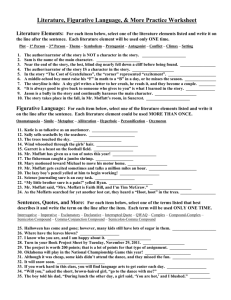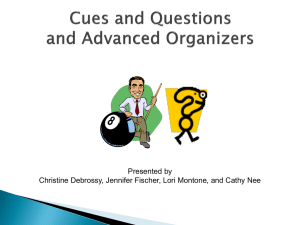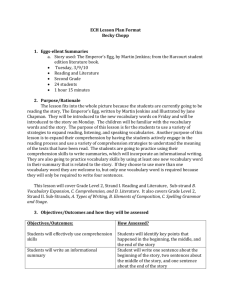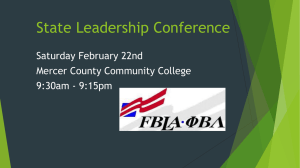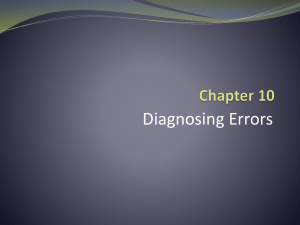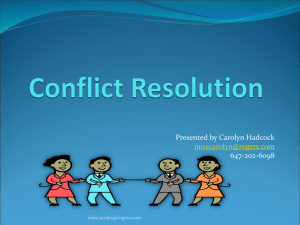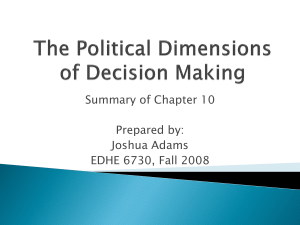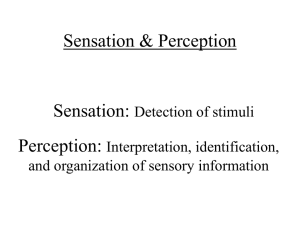File - UKYCESL
advertisement
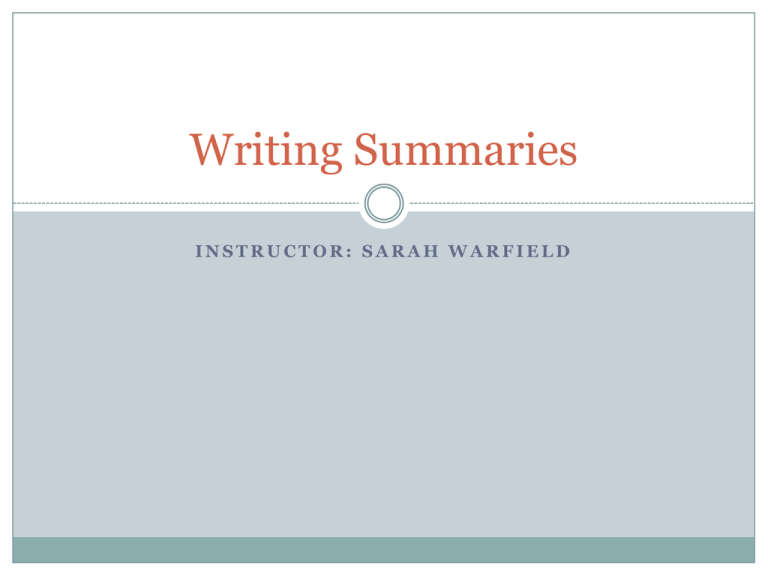
Writing Summaries INSTRUCTOR: SARAH WARFIELD What is a summary? A summary is a long text that has been reduced to only include essential parts: Main ideas, without examples and details In a summary the form, sentence structure, and vocabulary has changed but the main ideas are the same Why are we learning about summaries? Summarizing is not a natural skill. Writers often copy verbatim (word-for word), write summaries that are too long (with too many details), or write really short summaries that are missing important information. Writers don’t know what a summary is or how to write one. Summarizing is a specific and technical skill. Why are we learning about summaries? Important skill that you will use throughout your academic careers Improves reading skills picking out the main ideas of a reading Helps with vocabulary skills paraphrasing Helps with critical thinking skills decide on the main ideas of the reading to include in the summary Writing and editing skills drafting and editing your summary Cooperative learning work with peers throughout the writing and revision process How to write a summary Read the entire text. 2. While you read, underline main ideas. 3. On a separate piece of paper, take notes about your main ideas. 1. Your notes should be words and phrases—not sentences 4. Use your notes to write a summary. 5. Write a summary. 6. Compare it to the original. Summary 1 Students today think college is a broadening experience that involves much more than academics. This is what Michael Moffatt, a professor of anthropology at Rutgers University, discovered after conducting an anthropological study of college life. Moffatt examined and observed Rutgers students by living in the dormitories for two years. Then he reported his findings in the Journal of Higher Education in an article entitled “College Life: Undergraduate Culture and Higher Education.” Moffatt wrote this article to show administrators and professors how students view college. He pointed out that students saw college as more than a center for higher academic learning; instead, they viewed their college years as a time when they learned how to balance work and play. The students claimed that they learned just as much outside the classroom as they learned inside. College was also valuable because it exposed them to a diversity of people (Moffatt 44-46, 60). On the whole, my views on college are similar to those of the Rutgers University students whom Moffatt studied. Summary 2 In “Is Google Making Us Stupid?,” Nicholas Carr argues that Internet activity, which is based on speed, is not only changing the way we read (turning us into skimmers), but changing the way we think. Carr gives a brief history of how technology (writing, the printing press, the clock) has altered the way we think and act. Historically, people have always warned that new technologies would undermine to our capacity to think; while Carr admits that they ultimately gave us more than they took away, he thinks the Internet is fundamentally different. Although the Internet offers the ability to find an incredible amount of information, there is little room for contemplation of that information. Without the skill to read deeply, we cannot think deeply, and thus we will become a culture of no depth. Summary 3 After forgetting to use tickets he had for a Rolling Stones concert, Washington Post sports and humor columnist Tony Kornheiser lamented another aspect of getting old--memory loss--and made some tongue-in-cheek suggestions about how to deal with the problem. He cited some suggestions he had read in his paper’s "Health" section. The suggestions were "rehearse-repeat" and "use cues." Rehearse-repeat wouldn’t seem to work because if you have memory loss you might forget why you’re trying to remember whatever it is. And cues wouldn’t work because you can forget what the cues stand for. His examples of how these techniques might fall apart were very funny because they were gross exaggerations. One example resulted in a fictional person being committed for continually babbling "I’m out of Feen-a-Mint," while trying the rehearse-repeat technique. He also pointed out that using cues such as HOMES to remember the names of the Great Lakes might not work if you can’t recall that the E stands for Erie and not Evelyn. He joked with a friend about whether she was going to use contraband drugs at the Stones concert for old times sake, but she chose to use ginkoba, a memory improvement drug. Summary 4 In his essay "Communication: Its Blocking and Its Facilitation," psychotherapist Carl R. Rogers presents two main ideas: that the individual's tendency to evaluate, from her own point of view, another's statement is a major block to interpersonal communication; and that this problem may be solved if the individual listens to and genuinely tries to understand the statement from the other's point of view. This solution is powerfully effective in psychotherapy, the whole task of which is to deal with failures of communication. While Rogers' solution seems simple, there are many reasons why it is difficult to achieve empathetic understanding of another's frame of reference. One challenge is finding the courage to risk changing ourselves when we undertake this process, especially when our emotions are strongly engaged in our own positions. In such cases, Rogers explains, a sympathetic, disinterested third party can help the antagonists achieve mutual understanding, especially if they can be induced to approach the task as partners trying to solve a problem together, rather than as opponents attacking each other. This "test-tube" solution to communication failures could be successfully applied to large groups worldwide, Rogers believes, if Western civilization had enough faith in the social sciences to invest in projects like his. In fact, he asserts that our continued survival may depend upon such an investment. What should be in a summary? (Please tell me) 1. 2. 3. 4. 5. 6. 7. 8.
